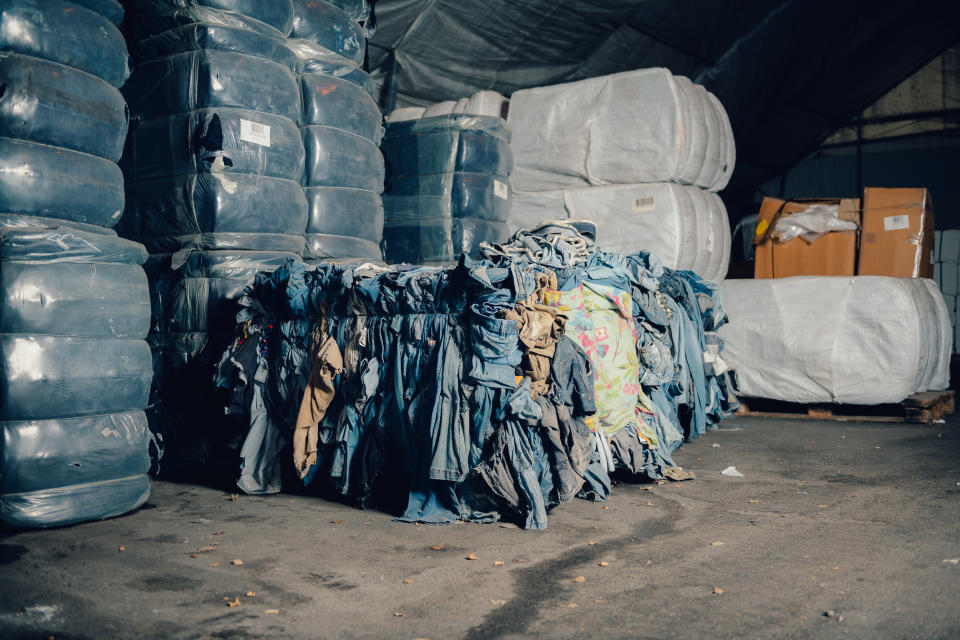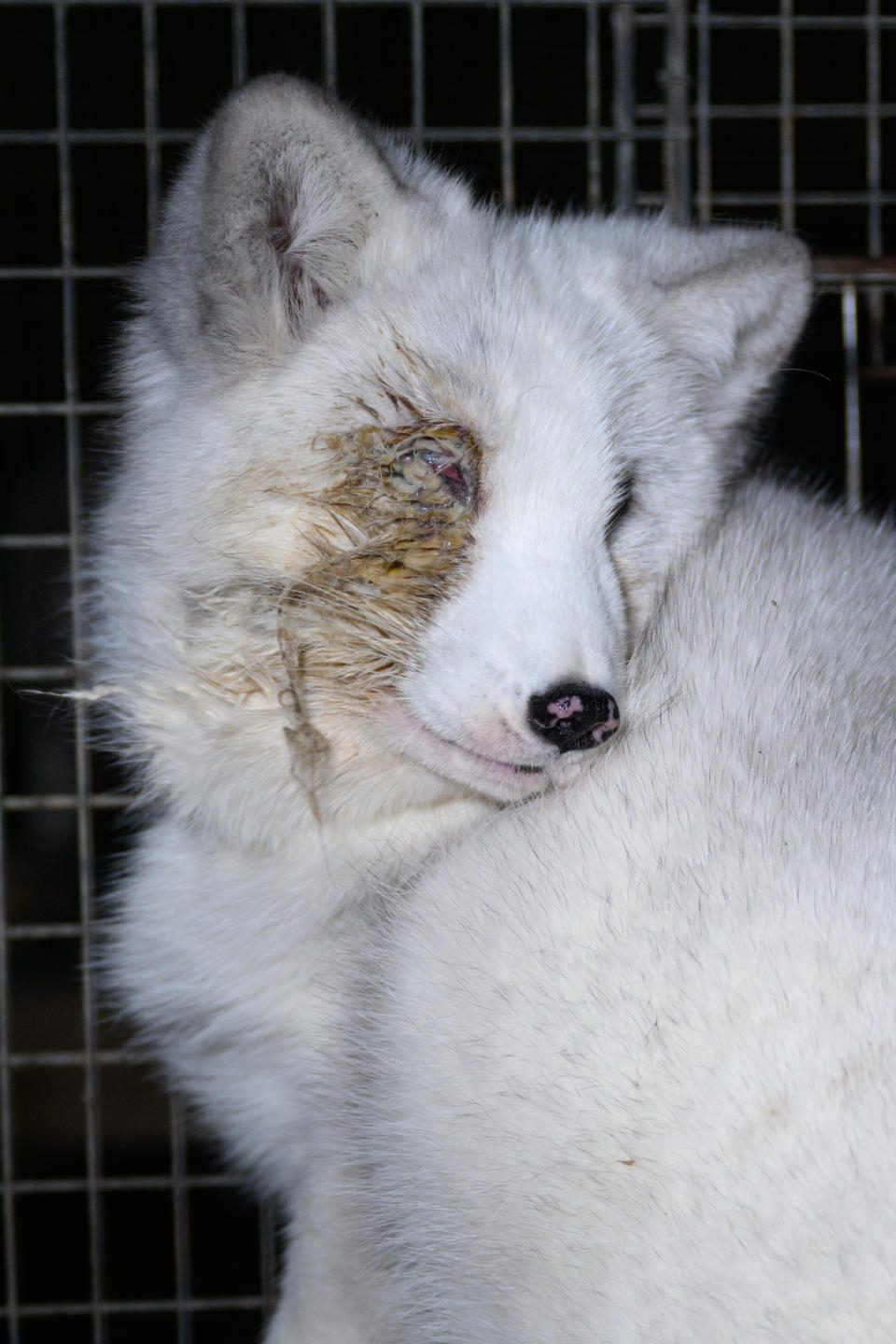Ba&sh Partners With Nativa on Regenerative Farming; Renewcell Seeks New Funds

REGENERATIVE FARMING’S BIG BASH: French contemporary brand Ba&sh is partnering with Nativa on a new project to help fund the transition of farms in Uruguay to regenerative farming practices.
As part of the agreement, Ba&sh will incorporate wool from these farms into its future knitwear collections and has set a goal of using 30 percent of regenerative or transitioning wool into its collections by the end of 2025.
More from WWD
Shein Aims for Accessible, Sustainable Fashion, Strategic Communications Head Says
Why Commitment and Collaboration Are Critical to Further Sustainability
The company said this will require structural changes in the design process, logistics as well as readjusting its supply chain to align with the farming calendar.
”By partnering with the Nativa Regenerative Agriculture Program, we hope to foster a more demanding and innovative relationship between the fashion industry and its agricultural partners. We are aware of the need to make further progress in certain areas to make fashion more environmentally friendly and respectful of life on our planet,” said Ba&sh chief executive officer Pierre-Arnaud Grenade.
“Our approach to today’s burning issues involves taking a holistic view, and regenerative agriculture meets all these criteria,” he added.
The company noted that planetary limits “have been breached, particularly relating to the change of use of soil,” and it seeks to mitigate that through this program. The work with Nativa will support soil regeneration, biodiversity, moving away from synthetic fertilizers and improving the economic situation of farmers.
“[The program] has the power to profoundly transform agriculture by regenerating soils and improving the resilience of farming systems,” the company said.
Nativa reintroduces native species to help restore ecosystems and biodiversity.
Ba&sh is using traceability tool Fairly Made to track its suppliers, production sites and subcontractors in this process. Tier-one suppliers must also undergo a third-party social audit.
Ba&sh is owned by French investment firm HLD, which purchased the label last year for an undisclosed sum. HLD has a portfolio of 18 brands and is heavily invested across the women’s ready-to-wear sector.

RENEW’S TOUGH SELL: Swedish textile-to-textile recycler Renewcell is seeking new funding following its disappointing third-quarter sales results and its ongoing struggle to find buyers for its fiber.
Presenting financial results released Nov. 7, interim chief executive officer Magnus Håkansson said the company is producing below its financial breakeven point.
It has the capacity to scale up to 60,000 tons annually, but producers and brands have not yet been on the receiving end. Håkansson noted the company has sold more than 14,200 tons to trading house Ekman, but only 4,000 tons have made their way through the supply chain and into the hands of brands.
Purchase agreements from H&M Group, which owns about an 11.5 percent stake in the company, and a show of support made Oct. 27 from Zara parent company Inditex to acquire 2,000 tons of textile made from Renewcell’s pulp have not been enough to move material through the supply chain.
The sales slide has continued.
“Sales volumes in November are now expected to be lower than previously anticipated and in line with October sales volume,” the company said in a statement. The company is now looking for additional funding and seeking to boost sales to textile producers.
“Discussions are ongoing with a number of customers to secure orders, but it is uncertain when they will materialize,” the company said.
Renewcell has invested about 115 million euros to build its state of the art plant outside of Stockholm, where it can produce up to 60,000 tons of pulp. That pulp can be sold on to manufacturers to be turned into new textiles, but the company has so far not been able to successfully move it into the supply stream.
The company’s board of directors has hired Norwegian investment bank ABG Sundal Collier to assist in a strategic review of its options. Debt funding, or the sale of additional shares to public or private investors, are both on the table.
As brands pledge to meet somewhat nebulous targets of “more sustainable materials” within the next few years, Renewcell’s factory was launched just a year ago with the intention to fill this gap.

FUR FARMS AND EMISSIONS: The Humane Society International released the results of its undercover investigation of European fur farms as the European Commission considers a bloc-wide ban.
Undercover footage from more than 100 farms in six countries showed mink, foxes and raccoon dogs in small wire cages with no floor, suffering from open wounds, bacterial and insect infections and with missing limbs.
HSI’s peer-reviewed research showed that the carbon footprint of 1 kg of mink fur is nearly 310 kg of carbon, making it 31 times higher than cotton, 26 times higher than acrylic and 25 times higher than polyester.
Raccoon dog fur and fox fur also have high carbon footprints the organization said, rating it about 23 times more carbon intense than cotton, and 18 times worse than petroleum-based polyester.
The results of the investigation were released just as the European Commission is preparing a public response to a citizens’ initiative to ban fur farming. That decision is expected Dec. 14.
Best of WWD


